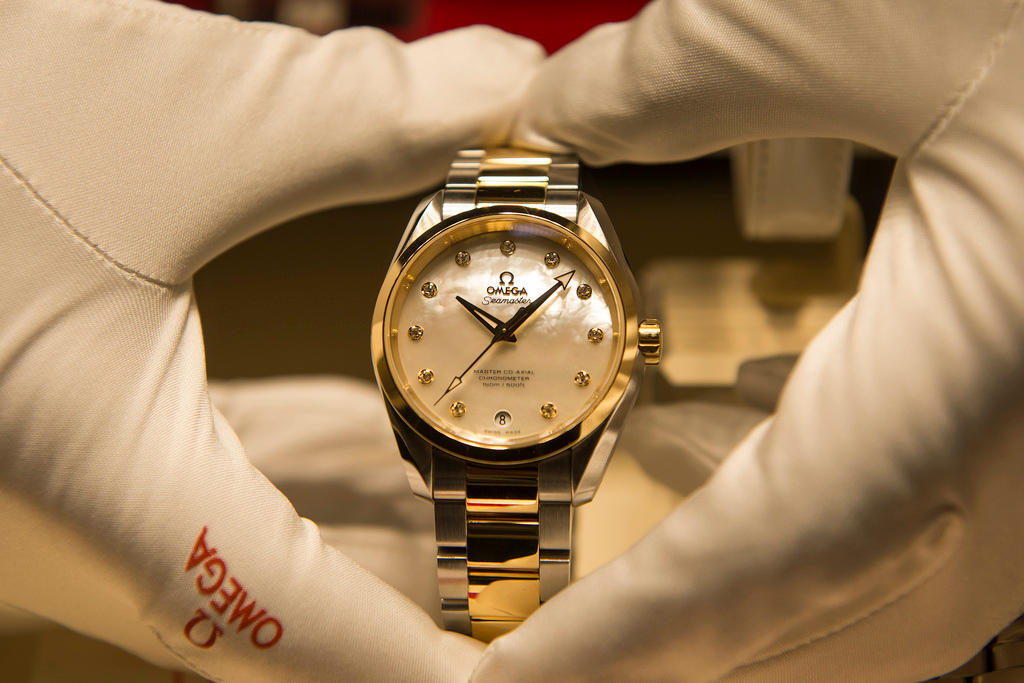Further gloom in store for Swiss watchmakers

Sentiment is depressed but hope lingers on, says Ralph Atkins of the Financial Times.
With its large display windows and bright lighting, the Beyer watch shop on Zurich’s prestigious Bahnhofstrasse suggests modern, prosperous calm. For manufacturers of luxury mechanical Swiss timepieces, the shop is a battleground, the symbol of a significant fight.

More
Financial Times
External linkThe Swiss watch industry is in a steep downturn. Sales have collapsed in Hong Kong, its largest market, as Chinese shoppers have spurned the territory, partly thanks to the exchange rate, and retailers deal with extensive overstocking. Exports of Swiss watches to Hong Kong fell 40% in September 2016 from a year earlier, according to the Federation of the Swiss Watch Industry, and over 50% from two years ago.
Sales in Europe, meanwhile, have been hit by the effects on tourism of terrorist attacks and a spluttering global economy. Exports to Italy, Germany and France all fell between 14% and 23% year on year.
‘Untapped’ overseas demand
Any brightening in the outlook is likely to be noticed in shops such as Beyer, which has sold watches in Switzerland’s financial capital since 1760. “For the main watch companies, their ability to sell into the trade depends not only on themselves and the quality of their brands – but, crucially, the level of third-party distributors’ inventories and the mood of retailers,” explains Thomas Chauvet, luxury goods analyst at Citigroup. “We’re not through the inventories cycle yet, and the mood of retailers is rather depressed.”
The good news at Beyer is that sales may be gradually improving. Custom on Bahnhofstrasse depends on overseas visitors, including those from China, as well as local bankers. “In the early part of the year there was insecurity about terrorism in Europe. But tourist numbers improved in July and August,” says Markus Baumgartner, sales director, over coffee served in china cups emblazoned in gold with the company’s crest. “If you exclude one-off large contacts, our sales [so far in 2016] are slightly higher than the previous year . . . We have a good feeling about Christmas.”
It is an appearance of optimism in the gloom that has spread across the industry. In its annual Swiss watch industry survey published in September, consultancy Deloitte reported that the number of watch executives who were pessimistic about the outlook had doubled since 2015 to 82%. Some 57% of executives surveyed expected demand for Swiss watches in Hong Kong to decline further in the next year.
Nevertheless, Deloitte saw signs of a possible turnaround. “Though the weaker foreign demand remains challenging for the Swiss watch market we do see rays of hope,” said Karine Szegedi, head of fashion and luxury at Deloitte in Switzerland. She cited the attractiveness of the “Swiss Made” label and also the “untapped” demand outside big cities in China as well as US and Indian markets.
For now, however, the industry is scanning its main markets for signs of an improvement. Most executives remain cautious. Johann Rupert, veteran chairman of Richemont, which owns brands including Cartier and Montblanc, this month warned his group would have to “slim down” as sales slid.
“I don’t have to tell any of my colleagues about the urgency,” Mr Rupert told journalists as the group reported a 13% fall in sales to €5.1bn in the six months to September compared with a year earlier.
At rival Swatch, chief executive Nick Hayek has been more willing to brazen out the global downturn. The Biel-based group, which includes luxury brands such as Omega and Blancpain as well as its eponymous mass-market products, earlier this year argued that “in the mid to long term, there are many more opportunities than risks.”
Increasingly, watch sales fluctuate in line with exchange rates – customers frequently travel and price information is quickly shared. Japanese sales rose when the yen was weak. But the most startling example is the UK, where luxury watch sales surged after the fall in the pound that followed the British vote to leave the EU on June 23. Swiss watch exports to the UK in September were almost a third higher than a year ago as foreign buyers snapped up watches from UK retail outlets.
Counterfeiting concerns
One risk factor which is fading – at least for now – is the rise of the smartwatch. The Deloitte survey found the percentage of Swiss watch executives regarding products such as the Apple Watch as a significant risk to their business had fallen to 21% – down from 25% last year. Most Swiss watch executives believe the products are complementary.
But Deloitte reported mounting concern about the dangers posed by counterfeiting – which ranked among the top five risks to the sector for the first time since it began its survey in 2012.
The increasing ease with which fake watches can be distributed is, in turn, the result of another trend over the past year – an increased focus on online sales. Half of the watch executives Deloitte surveyed said they would put “most emphasis” on online resellers in the next 12 months – up from just 19% in 2015.
As part of this month’s management shake-up, Richemont appointed Georges Kern, chief executive of IWC Schaffhausen, to head its watchmaking, marketing and digital operations. Yoox Net-a-Porter, the online retailer, is already selling items worth as much as EUR50,000 (CHF 53,561) – bringing luxury watches into its price range.
The rise of online sales has not yet ruffled Beyer on Bahnhofstrasse. True, some customers visit the store to look at products, then purchase online, Mr Baumgartner admits. “From time to time, we have noticed that, but I have to say most customers buy from us because they appreciate the service, the personal touch, and the price difference is not so much.”
While Beyer is experimenting with online sales channels, Mr Baumgartner is not yet convinced they are the future. “It’s fine to buy a banana online but when it comes to the products we sell, well, it’s conceivable you might buy online, but there’s a lot of emotion involved which I don’t think you can replicate on the internet.”
Copyright The Financial Times Limited 2016

In compliance with the JTI standards
More: SWI swissinfo.ch certified by the Journalism Trust Initiative











You can find an overview of ongoing debates with our journalists here . Please join us!
If you want to start a conversation about a topic raised in this article or want to report factual errors, email us at english@swissinfo.ch.